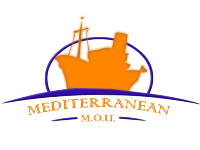Main Promo Images
01.JPG
http://columbusamericanregister.com/american-register/images/1ST-PAGE/01.JPG
02.jpg
http://columbusamericanregister.com/american-register/images/1ST-PAGE/02.jpg
03.jpg
http://columbusamericanregister.com/american-register/images/1ST-PAGE/03.jpg
04.jpg
http://columbusamericanregister.com/american-register/images/1ST-PAGE/04.jpg
05.jpg
http://columbusamericanregister.com/american-register/images/1ST-PAGE/05.jpg
06.jpg
http://columbusamericanregister.com/american-register/images/1ST-PAGE/06.jpg
07.jpg
http://columbusamericanregister.com/american-register/images/1ST-PAGE/07.jpg
08.jpg
http://columbusamericanregister.com/american-register/images/1ST-PAGE/08.jpg
09.jpg
http://columbusamericanregister.com/american-register/images/1ST-PAGE/09.jpg
10.jpg
http://columbusamericanregister.com/american-register/images/1ST-PAGE/10.jpg
The Maritime Labour Convention, 2006 is an important new international labour convention that was adopted by the International Labour Conference of the International Labour Organization (ILO), under article 19 of its Constitution at a maritime session in February 2006 in Geneva, Switzerland. It sets out seafarer's rights to decent conditions of work and helps to create conditions of fair competition for shipowners. It is intended to be globally applicable, easily understandable, readily updatable and uniformly enforced.
The MLC, 2006 has been designed to become a global legal instrument that will be the "fourth pillar" of the international regulatory regime for quality shipping, complementing the key Conventions of the International Maritime Organization (IMO) such as the International Convention for the Safety of Life at Sea, 1974, as amended (SOLAS), the International Convention on Standards of Training, Certification and Watchkeeping, 1978, as amended (STCW) and the International Convention for the Prevention of Pollution from Ships, 73/78 (MARPOL).»










